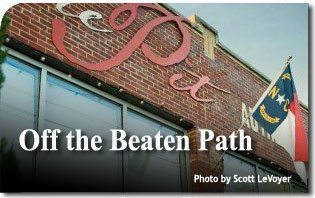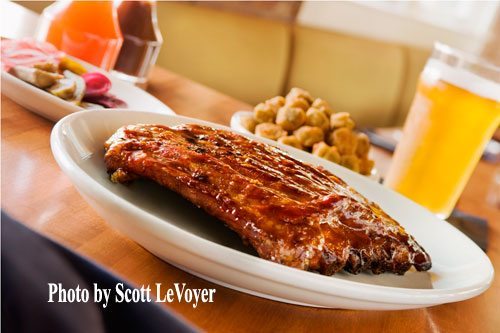 Since reading Return to Order by John Horvat, I was inspired to apply the principles he so clearly lays out for the reader. He gives organic society as the solution for our economic problems and an essential part of such a plan is a healthy regionalism. Although it might be hard to believe, America as Europe has a myriad of examples of such a thing.
Since reading Return to Order by John Horvat, I was inspired to apply the principles he so clearly lays out for the reader. He gives organic society as the solution for our economic problems and an essential part of such a plan is a healthy regionalism. Although it might be hard to believe, America as Europe has a myriad of examples of such a thing.
It is for this reason that I decided, on a recent trip to North Carolina, to avoid chain restaurants in favor of more local flavors. This not only helps to support regional businesses, but it gives the traveler a chance to really appreciate and subsequently understand the area they are visiting. My efforts were paid off today when I had lunch at The Pit in downtown Raleigh, North Carolina’s warehouse district. It was recommended by locals as a good place to sample a bit of barbeque, for which this state is most known.
What struck me first was the excellence of the food; every dish was a culinary masterpiece one would only expect to find in grandma’s kitchen. Add to this the quantity and you can be assured that you will leave The Pit completely satisfied. This is due as much to the excellence of the food as from the fact that what you eat is largely produced by local people.

Michael Woods is the Assistant Chef and he took time out of his busy schedule to share some of the secrets of their success. The conversation with him was nearly as enjoyable as the lunch I had just enjoyed. He explained the history of the restaurant. One of the secrets of their success is the authenticity of the barbeque which began with a legendary “pit-master” and co-founder Ed Mitchell, a black gentleman who put them on the map in Raleigh. Mr. Mitchell’s picturesque bushy white beard and frayed overalls might have deceived some of the early patrons, but they quickly made The Pit their favorite watering hole in town. Mitchell is no longer with them, but Mr. Woods explained how the trademark flavors crafted by him continue.
Their website boasts of having “the freshest of the state’s bountiful produce.” The meat they serve, for example, is as homegrown as the founder. The pigs used to produce their world class ribs are obtained exclusively from farmers barely an hour away from the restaurant and are raised with free-range farming practices. Even more interesting is the pedigree of their sweet potatoes. They are purchased from another local farmer who proudly boasts of the fact that the seeds used to grow them are from the same line that dates back to the turn of the century. Their delicious heirloom cabbage collards also enjoy a long tradition of satisfying the palate of customers; their seed line is several generations old. The farmer they buy them from “had to plant fifteen extra acres just to keep up with our demand,” Mr. Woods explained. Such is the case with a catfish company that supplies them with their fish. It is appropriately named “Locals.”
All of the spirits at The Pit have been handpicked to enhance the smoked and sometimes spicy fare cooked off the pit, as well as with some of the more traditional entrees.
Although they have been in business for only four years they enjoy an enormous popularity with the locals… and those who take the time to get off the beaten path. Fridays and Saturdays are their busiest days as they serve 3,000 people.
Yes it does pay to get off the beaten path and discover what makes a particular region of the United States special. Yes there is an alternative to the mass-produced, artificially re-created country-store-atmosphere in such places like Cracker Barrel. Today I was able to say NO to this lack of authenticity and the fabricated flavors dished up by chain stores in favor of something truly unique.

